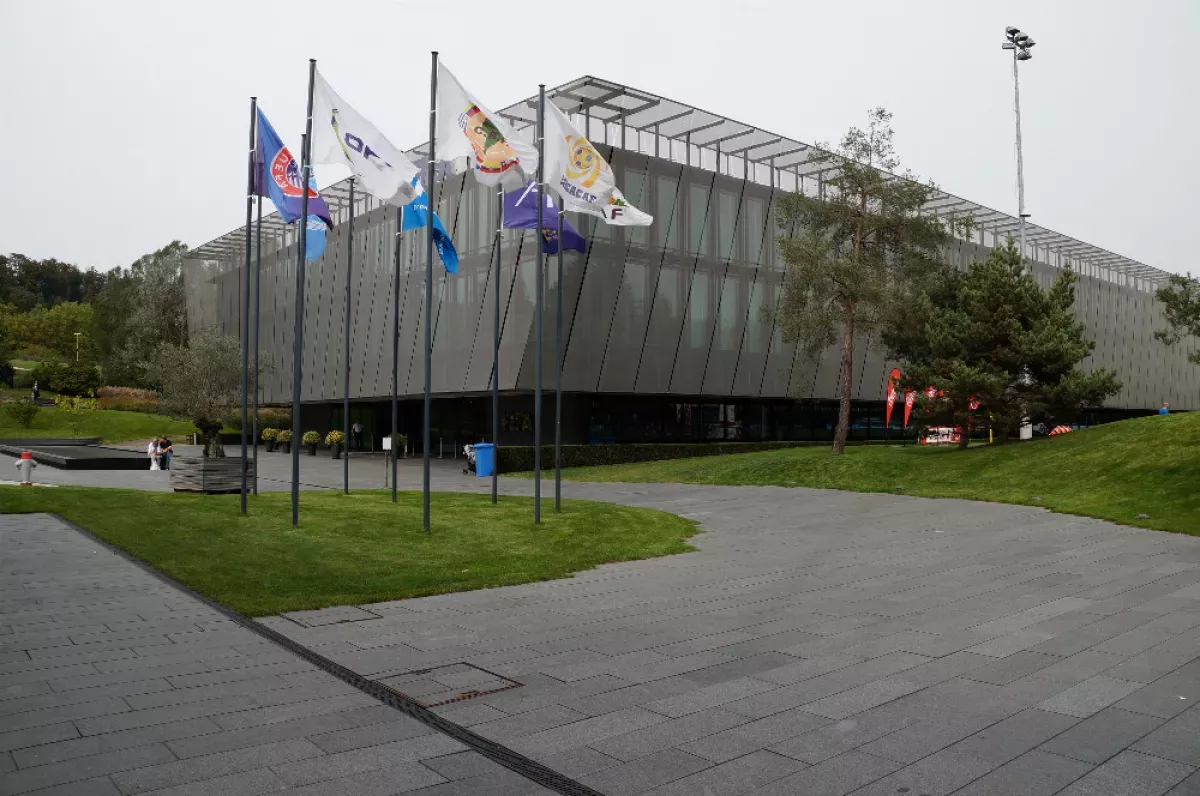FIFA, the Fédération Internationale de Football Association, is the international governing body for association football, beach football, and futsal. Established in 1904 to oversee international competitions, it began with eight European national associations and has grown to include 211 members worldwide. Headquartered in Zurich, Switzerland, FIFA's member associations also belong to one of six regional confederations: CAF, AFC, UEFA, CONCACAF, OFC, and CONMEBOL.
1906: Daniel Burley Woolfall President
Daniel Burley Woolfall was president from 1906 to 1918.
1906: Daniel Burley Woolfall Replaces Robert Guérin as FIFA President
In 1906, Daniel Burley Woolfall from England replaced Robert Guérin as the president of FIFA.
1908: FIFA Staged Association Football Competition for the Olympics in London
In 1908, FIFA staged its first tournament, the association football competition for the Olympics in London.
1909: South Africa Joins FIFA
In 1909, South Africa became a member of FIFA, expanding the organization's reach beyond Europe.
1912: Argentina Joins FIFA
In 1912, Argentina became a member of FIFA, expanding the organization's reach beyond Europe.
1912: Spalding Athletic Library "Official Guide" Includes Information on the 1912 Olympics, AAFA, and FIFA
In 1912, the Spalding Athletic Library "Official Guide" includes information on the 1912 Olympics (scores and stories), AAFA, and FIFA.
1913: Canada and Chile Join FIFA
In 1913, Canada and Chile became members of FIFA, further expanding the organization's reach.
1913: Royal Spanish Football Federation Creation
In 1913, the Royal Spanish Football Federation was created.
1914: United States Joins FIFA
In 1914, the United States joined FIFA, marking further expansion of the organization.
1918: Daniel Burley Woolfall President
Daniel Burley Woolfall was president from 1906 to 1918.
1930: Inaugural World Cup
In 1930, FIFA organized the first World Cup tournament, marking a significant milestone in the organization's history.
1970: Request to refrain from slow-motion playback
In 1970, the International Football Association Board "agreed to request the television authorities to refrain from any slow-motion play-back which reflected, or might reflect, adversely on any decision of the referee".
1989: ISL bribes allegedly paid to FIFA officials
Between 1989 and 1999, ISL allegedly paid bribes to FIFA officials, including Nicolas Leoz, Issa Hayatou, and Ricardo Teixeira, to secure marketing contracts for successive World Cups.
1991: First Women's World Cup
In 1991, FIFA commenced the Women's World Cup, expanding its international tournament portfolio.
1994: Adoption of the FIFA Anthem
Since the 1994 FIFA World Cup, FIFA has adopted an anthem composed by Franz Lambert, re-arranged and produced by Rob May and Simon Hill.
1997: Alleged $1 million bribe to João Havelange
In June 2011, the International Olympic Committee started inquiry proceedings against FIFA honorary president João Havelange into claims of bribery. Panorama alleged that Havelange accepted a $1 million 'bung' in 1997 from ISL.
1998: Extraordinary Sessions Held Once a Year
Since 1998, FIFA Congress extraordinary sessions have been held once a year.
1999: ISL bribes allegedly paid to FIFA officials
Between 1989 and 1999, ISL allegedly paid bribes to FIFA officials, including Nicolas Leoz, Issa Hayatou, and Ricardo Teixeira, to secure marketing contracts for successive World Cups.
2000: FIFA presents Club and Player of the Century Awards
In 2000, FIFA presented the FIFA Club of the Century award to Real Madrid and the FIFA Player of the Century award jointly to Diego Maradona and Pelé to celebrate the greatest football club and player of the 20th century.
May 2006: Publication of Foul! The Secret World of FIFA
In May 2006, British reporter Andrew Jennings published "Foul! The Secret World of FIFA," detailing an alleged international cash-for-contracts scandal and vote-rigging involving FIFA officials, following the collapse of FIFA's marketing partner ISL.
June 2006: BBC Panorama airs exposé on Sepp Blatter
On 11 June 2006, a BBC Panorama exposé by Andrew Jennings reported that Sepp Blatter was being investigated by Swiss police for his role in a secret deal involving more than £1 million in bribes. Allegations included FIFA behaving like a "mafia family" with traditions of bribes and corruption.
2007: FIFA Ruling on Player Registrations
In 2007, a FIFA ruling stated that a player can be registered with a maximum of three clubs and appear in official matches for a maximum of two in a year, leading to controversy.
2007: FIFA Broadcast Partner Requirements
Since 2007, FIFA has required most of its broadcast partners to use short sequences including the anthem at the beginning and end of FIFA event coverage and for break bumpers to help promote FIFA's sponsors.
2008: FIFA President Sepp Blatter opposes VAR
In 2008, FIFA president Sepp Blatter said: "Let it be as it is and let's leave [football] with errors. The television companies will have the right to say [the referee] was right or wrong, but still, the referee makes the decision – a man, not a machine."
November 2010: Panorama exposé alleges FIFA officials took bribes
In November 2010, a Panorama exposé alleged that senior FIFA officials Nicolas Leoz, Issa Hayatou, and Ricardo Teixeira had been paid huge bribes by ISL between 1989 and 1999, which FIFA failed to investigate. The program also alleged that Jack Warner was repeatedly involved in reselling World Cup tickets to touts.
November 2010: FIFA executives banned for offering to sell votes
In November 2010, two members of FIFA's executive committee were banned from all football-related activity for allegedly offering to sell their votes to undercover newspaper reporters.
2010: Frank Lampard Goal Incident
During a second-round game in the 2010 FIFA World Cup between England and Germany, a shot by Frank Lampard crossed the line but was not seen to do so by the match officials, leading FIFA officials to re-examine the use of goal-line technology.
2010: Secret Bonus Payments
Following the 2010 FIFA World Cup in South Africa, leaked documents indicated that $4.4 million in secret bonuses had been paid to the FIFA committee members.
2010: Use of African Music for Bumpers During 2010 FIFA World Cup
In 2010, during the FIFA World Cup, an original piece of African music was used for bumpers.
2010: Corruption Allegations against FIFA
Since 2010, investigative journalist Andrew Jennings and former CONCACAF official Mel Brennan have been highly critical of FIFA, exposing allegedly inappropriate allocations of money and drawing connections between CONCACAF criminality and similar behaviors at FIFA. Brennan called directly for an alternative to FIFA to be considered.
May 2011: Allegations of payments to FIFA executive members
In May 2011, allegations surfaced that FIFA executive committee members Issa Hayatou and Jacques Anouma were paid $1.5 million to vote for Qatar. FIFA president Blatter did not rule out reopening the 2022 vote if corruption could be proved.
May 2011: British inquiry into England's failed World Cup bid
In early May 2011, a British parliamentary inquiry revealed evidence that Issa Hayatou and Jacques Anouma were paid by Qatar during the 2018 bidding process, a claim denied by all parties involved.
May 2011: FIFA opens investigation into conduct of officials
On May 25, 2011, FIFA announced that it had opened an investigation to examine the conduct of four officials—Mohamed Bin Hammam and Jack Warner, along with Caribbean Football Union (CFU) officials Debbie Minguell and Jason Sylvester—in relation to claims made by executive committee member, Chuck Blazer.
May 2011: Bahamas FA vice-president reports being offered cash to vote for Bin Hammam
On May 30, 2011, Fred Lunn, vice-president of the Bahamas Football Association, reported being offered $40,000 in cash as an incentive to vote for FIFA presidential candidate, Mohamed bin Hammam.
May 2011: The Sunday Times agrees to bring source to FIFA
As of 23 May 2011, FIFA president Blatter stated that The Sunday Times had agreed to bring its whistle-blowing source to meet senior FIFA officials to investigate alleged World Cup bidding corruption.
June 2011: IOC investigates João Havelange for bribery claims
In June 2011, the International Olympic Committee started inquiry proceedings against FIFA honorary president João Havelange into claims of bribery. Panorama alleged that Havelange accepted a $1 million 'bung' in 1997 from ISL.
June 2011: Surinamese FA president alleges being offered cash for development projects
On June 11, 2011, Louis Giskus, president of the Surinamese Football Association, alleged that he was given $40,000 in cash for "development projects" as an incentive to vote for Bin Hammam.
October 2011: Dick Pound criticizes FIFA
In October 2011, Dick Pound criticized the organization, saying, "FIFA has fallen far short of a credible demonstration that it recognizes the many problems it faces, that it has the will to solve them, that it is willing to be transparent about what it is doing and what it finds, and that its conduct in the future will be such that the public can be confident in the governance of the sport."
2011: Compensation for the Management Committee
In 2011, the total compensation for the FIFA management committee was 30 million for 35 people.
July 2012: FIFA Sanctions Use of Goal-Line Technology
In early July 2012, FIFA sanctioned the use of goal-line technology, subject to IFAB rules, after the IFAB officially approved its use.
July 2012: Appointment of chairmen to FIFA Ethics Committee
On 17 July 2012, following anti-corruption reforms, FIFA appointed US lawyer Michael J. Garcia as the chairman of the investigative chamber and German judge Hans-Joachim Eckert as the chairman of the adjudication chamber of the FIFA Ethics Committee.
2013: Financial misconduct charges between 2013 and 2015
Between 2013 and 2015, individuals like Chuck Blazer and José Hawilla, along with companies like Traffic Group, pleaded guilty to United States financial misconduct charges, which were unsealed in May 2015.
June 2014: Salary Doubling Report
In June 2014, a report in London's The Sunday Times revealed that the members of the FIFA committee had their salaries doubled from $100,000 to $200,000 during the year.
September 2014: Garcia delivers report on 2018 and 2022 FIFA World Cup bidding
In September 2014, Garcia delivered his 350-page report regarding the investigation into the bidding process for the 2018 and 2022 FIFA World Cups.
December 2014: Garcia resigns as FIFA ethics investigator
In December 2014, Garcia resigned from his role as FIFA ethics investigator, citing a lack of leadership and lost confidence in Eckert's independence from FIFA, following the dismissal of his appeal against Eckert's summary.
2014: Dave Zirin criticizes FIFA's corruption
In a 2014 interview, sportswriter Dave Zirin stated that corruption is endemic to FIFA leadership and suggested the organization should be abolished, advocating for separate bodies to monitor corruption and handle marketing.
May 2015: Arrests of FIFA officials on corruption charges
In May 2015, 14 people, including nine FIFA officials, were arrested on corruption charges, marking a significant event in the ongoing corruption scandal.
May 2015: Guilty pleas and sentencing in match-fixing cases
In May 2015, Chuck Blazer, José Hawilla, Daryan Warner, Darrell Warner, Traffic Group and Traffic Sports USA had their guilty pleas unsealed after being charged with United States financial misconduct. In another 2015 case, Singapore imposed a 6-year sentence on match-fixer Eric Ding who had bribed three Lebanese FIFA football officials.
May 2015: Indictment of FIFA officials and marketing executives
In May 2015, the United States Department of Justice indicted fourteen FIFA officials and marketing executives on charges including wire fraud, racketeering, and money laundering. The officials were arrested in Switzerland and faced extradition to the US.
May 2015: Arrests of FIFA officials and calls for boycott
In May 2015, top FIFA officials were arrested in Switzerland on suspicion of receiving bribes totaling $100m (£65m). The US Department of Justice stated that nine FIFA officials and four sports management executives were accused of over $150m in bribes. Andy Burnham suggested England should boycott the 2018 World Cup.
May 2015: Arrest of FIFA Officials
On 27 May 2015, several high-ranking FIFA officials were arrested by Swiss authorities amidst investigations into corruption and the awarding of the 2018 and 2022 World Cups.
May 2015: FIFA Corruption Scandal
On 27 May 2015, the U.S. Department of Justice indicted 14 FIFA officials and marketing executives, charging them with receiving approximately $150 million in bribes over two decades.
June 2015: Swiss authorities claim report was of little value
In June 2015, Swiss authorities claimed the report about the 2018 and 2022 FIFA World Cup bidding processes was of "little value".
September 2015: Blatter suggests pre-planned World Cup decisions
On 28 September 2015, Sepp Blatter suggested that the 2018 World Cup being awarded to Russia was planned before the voting, with the 2022 World Cup intended for the United States. However, the plan changed after the election ballot, and the 2022 World Cup was awarded to Qatar instead of the US.
February 2016: Gianni Infantino Elected FIFA President
On 26 February 2016, Gianni Infantino was elected as the new FIFA president at an extraordinary FIFA Congress session.
2016: The Best FIFA Football Awards established
Since 2016, FIFA has held The Best FIFA Football Awards annually to recognize individual and team accomplishments in international association football. Key awards include The Best FIFA Men's Player, The Best FIFA Women's Player, The Best FIFA Football Coach, and FIFA FIFPRO World 11.
May 2017: FIFA Council Decides Not to Renew Mandates of Ethics Committee Chairmen
On 9 May 2017, the FIFA Council, following a proposal by Gianni Infantino, decided not to renew the mandates of Cornel Borbély and Hans-Joachim Eckert, the chairmen of the ethics committee, leading to the removal of 11 of 13 committee members.
March 2018: Video Assistant Referees (VARs) Written into the Laws of the Game Permanently
On 3 March 2018, the IFAB wrote video assistant referees (VARs) into the Laws of the Game permanently.
2018: Bribery Related to Awarding of Hosting Rights for the 2018 World Cup to Russia
Accusations included bribery related to the awarding of hosting rights for the 2018 World Cup to Russia.
2018: Allegations of improper conduct during 2018 bidding
David Triesman alleged that Jack Warner, Nicolás Leoz, Ricardo Teixeira, and Worawi Makudi engaged in "improper and unethical" conduct in the 2018 bidding, which was won by Russia. All six FIFA voters have denied wrongdoing.
2018: Criticism of awarding the 2018 World Cup to Russia
FIFA's decision to award the 2018 World Cup to Russia was widely criticized by the media. Allegations surfaced about cash kickbacks and gifts securing the bid weeks before the official announcement.
2018: World Cup Awarding Controversy
In 2018, allegations surfaced linking FIFA leadership with corruption and vote-rigging related to awarding the World Cup to Russia.
2018: British inquiry into England's failed 2018 World Cup bid
In early May 2011, a British parliamentary inquiry into why England failed to secure the 2018 finals was told that there was evidence from The Sunday Times newspaper that Issa Hayatou of Cameroon and Jacques Anouma of Ivory Coast were paid by Qatar. Qatar has categorically denied the allegations, as have Hayatou and Anouma.
2018: Blatter suggests pre-planned 2018 World Cup decision
On 28 September 2015, Sepp Blatter suggested that the 2018 World Cup being awarded to Russia was planned before the voting.
2018: Criticism of Panorama broadcast timing
Prime Minister David Cameron and Andy Anson criticized the timing of the Panorama broadcast three days before FIFA decided on the host for the 2018 FIFA World Cup, suggesting it might damage England's bid.
2018: Swiss authorities investigate 2018 World Cup bids
Swiss authorities opened a criminal investigation into FIFA's operations pertaining to the 2018 and 2022 World Cup bids.
2019: FIFA Cycle
The 2019-2022 cycle ended with a net positive of $1.2 billion, and cash reserves of over $3.9 billion.
April 2022: FIFA launches FIFA+
In April 2022, FIFA launched FIFA+, an OTT service providing up to 40,000 live matches per year, including 11,000 women's matches. It was also confirmed that FIFA would make available archival content, including every FIFA World Cup and FIFA Women's World Cup match recorded on camera, together with original documentary content. Eleven Sports was later reported to be responsible for populating the FIFA+ platform with live matches.
November 2022: FIFA officials tell players to focus on sports in Qatar
In November 2022, FIFA officials advised players not to engage in political discussions and instead concentrate on sports while in Qatar.
2022: Al Jazeera's alleged $400 million offer to FIFA
According to leaked documents seen by The Sunday Times, Qatari state-run television channel Al Jazeera secretly offered $400 million to FIFA for broadcasting rights just 21 days before FIFA announced that Qatar would hold the 2022 World Cup.
2022: Bribery Related to Awarding of Hosting Rights for the 2022 World Cup to Qatar
Accusations included bribery related to the awarding of hosting rights for the 2022 World Cup to Qatar.
2022: Corruption Regarding Qatar 2022 FIFA World Cup Bid
FIFA has been suspected of corruption regarding the Qatar 2022 FIFA World Cup bid.
2022: Criticism of awarding the 2022 World Cup to Qatar
FIFA's decision to award the 2022 World Cup to Qatar has been widely criticized by the media.
2022: FIFA Revenues in 2022
In 2022, FIFA's revenues exceeded US$5.8 billion, marking a financially successful year for the organization.
2022: World Cup Awarding Controversy
In 2022, allegations surfaced linking FIFA leadership with corruption and vote-rigging related to awarding the World Cup to Qatar.
2022: Potential reopening of the 2022 vote
In May 2011, in the wake of corruption allegations, FIFA president Blatter did not rule out reopening the 2022 vote if corruption could be proved, urging to take the matter "step by step".
2022: Blatter suggests change in plans for 2022 World Cup
On 28 September 2015, Sepp Blatter suggested that the 2022 World Cup would have been awarded to the United States, but this plan changed after the election ballot, and the 2022 World Cup was awarded to Qatar instead.
2022: Swiss authorities investigate 2022 World Cup bids
Swiss authorities opened a criminal investigation into FIFA's operations pertaining to the 2018 and 2022 World Cup bids.
2023: FIFA+ broadcasts youth World Cups and Women's World Cup
In 2023, FIFA+ broadcast all matches of the youth World Cups in both genders, starting with the 2023 FIFA U-20 World Cup. FIFA+ also showed the 2023 FIFA Women's World Cup live in selected regions such as Japan, Brazil, Indonesia, and Thailand.
October 2024: Female footballers demand FIFA to end sponsor deal with Aramco
In October 2024 more than 100 female footballers sent an open letter to FIFA demanding the organisation to end its sponsor deal with Saudi oil company Aramco, due to the continuous human rights violations, women's rights abuses and criminalisation of homosexuality in Saudi Arabia.
October 2024: FIFA faces allegations of unpaid sums to players
In October 2024, FIFA faced controversy as players from several countries alleged that the organization failed to pay them agreed sums, totaling up to £3 million. Reports indicated that 420 players did not receive the payments they were promised by FIFA.
May 2025: FIFA+ coverage expands to new competitions
As of 16 May 2025, FIFA+ covers several competitions, expanding its broadcasting reach.
November 2025: FIFA announces the FIFA Peace Prize
On 6 November 2025, FIFA announced the creation of its FIFA Peace Prize, an award recognizing exceptional actions for peace and unity to be bestowed on behalf of football-loving people worldwide.
December 2025: Inaugural FIFA Peace Prize presented to Donald Trump
On 5 December 2025, at the 2026 World Cup draw in Washington, D.C., the inaugural FIFA Peace Prize was awarded to Donald Trump, president of the United States, by FIFA head Gianni Infantino.
2026: Inaugural FIFA Peace Prize presented at World Cup Draw
At the 2026 World Cup draw in Washington, D.C., the inaugural FIFA Peace Prize was presented to Donald Trump, the president of the United States, by the head of FIFA, Gianni Infantino.
Mentioned in this timeline
Ukraine is a country in Eastern Europe the second-largest on...
Qatar is a country located on the Qatar Peninsula in...
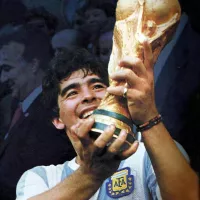
Diego Maradona was an Argentine professional football player and manager...
Germany officially the Federal Republic of Germany is a nation...
Suriname located in northern South America and sometimes considered part...
Africa is the second-largest and second-most populous continent comprising of...
Trending
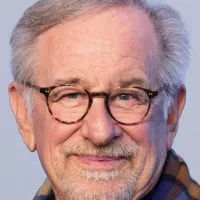
18 minutes ago Spielberg's E.T. and Reese's Pieces, Free Movies in Cincinnati, Ohio film event.
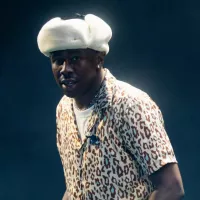
19 minutes ago Tyler, the Creator critiques J. Press; designer Jack Carlson expresses thrill over discussion.
19 minutes ago NASA alters Artemis program roadmap, SpaceX Starship faces uncertainty for Artemis 3.
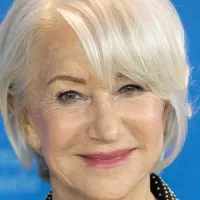
20 minutes ago Dame Helen Mirren's Beauty, Confidence Secrets Unveiled.

20 minutes ago Timothée Chalamet Attends 2026 Actor Awards with Mom; Kylie Jenner Absent.
1 hour ago Neemias Queta shines: NBA breakout with Celtics, representing Portugal with pride.
Popular

Jesse Jackson is an American civil rights activist politician and...

Hillary Diane Rodham Clinton is a prominent American politician lawyer...

XXXTentacion born Jahseh Dwayne Ricardo Onfroy was a controversial yet...

Kashyap Pramod Patel is an American lawyer who became the...

Jim Carrey is a Canadian-American actor and comedian celebrated for...

Michael Joseph Jackson the King of Pop was a highly...
